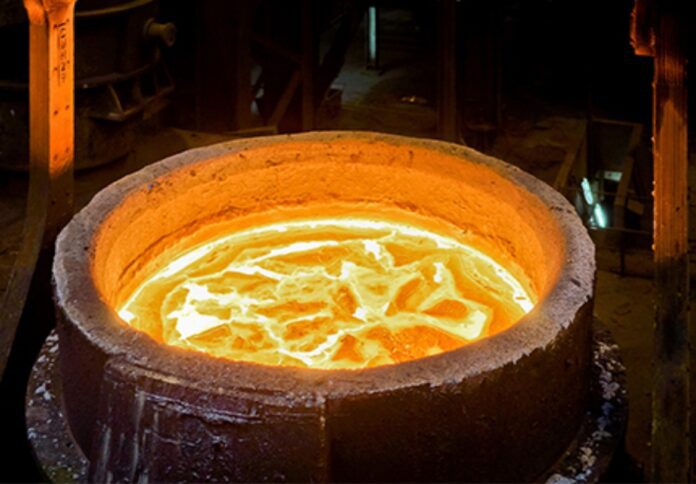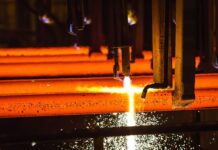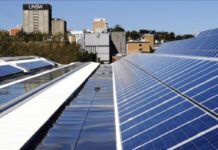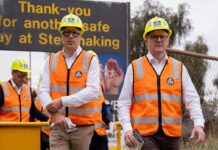
New Zealand Steel is set to exceed its initial greenhouse gas (GHG) reduction targets with its planned electric arc furnace at the Glenbrook steelworks, according to Chief Executive Robin Davies.
The project, which aims to significantly lower emissions, could now cut up to one million tonnes of GHGs annually—200,000 tonnes more than previously anticipated.
Davies also noted that the commissioning of the new plant is expected to be completed by the end of 2025, a year ahead of the original 2026 timeline.
In May 2023, New Zealand Steel announced the development of the electric arc furnace as a critical component of its strategy to reduce emissions.
The new facility was initially projected to reduce annual GHG emissions by up to 800,000 tonnes. However, recent advancements in the design phase indicate that these targets can be surpassed.
“The electric arc furnace project is progressing rapidly, with civil works already well underway,” Davies said.
“We are now looking at up to a one million tonne, or a megatonne, reduction in our annual GHG emissions, with starting commissioning brought forward to the end of 2025.”
Davies highlighted the project’s potential to make a significant impact on New Zealand’s national emissions reduction goals.
“Taking up to a megatonne of emissions out of the country’s current annual carbon footprint will make a significant contribution to meeting New Zealand’s emissions reduction targets,” he added.
The project has garnered support from the Energy Efficiency and Conservation Authority (EECA).
Dr Marcos Pelenur, EECA CEO, expressed enthusiasm for the accelerated timeline and increased emissions reductions.
“This project already ticked a number of boxes, delivering significant energy efficiency and emissions cuts, innovating in a key New Zealand industry, and sustaining a key contrbituor to regional economic development and improved resilience.” Pelenur stated.
Key to the project’s success are renewably generated electricity and an increased supply of local scrap steel.
To support these objectives, New Zealand Steel has sought additional power purchase agreements to supplement its existing arrangement with Contact Energy.
The electric arc furnace will allow for greater production flexibility, including the ability to adjust production levels during peak demand or supply shortages.
The project will also enhance the recycling of domestic scrap steel, reducing the need for overseas recycling and reinforcing local waste-to-value solutions.
Since the announcement, New Zealand Steel has secured contracts with Global Metal Solutions and SIMS for substantial quantities of domestic scrap steel.
Installation of the electric arc furnace is underway, with parts expected to arrive from Italian supplier Danieli in February 2025.
“I’m excited to see this state of the art technology arriving on our shores and being installed here at Glenbrook,” Davies concluded.



















